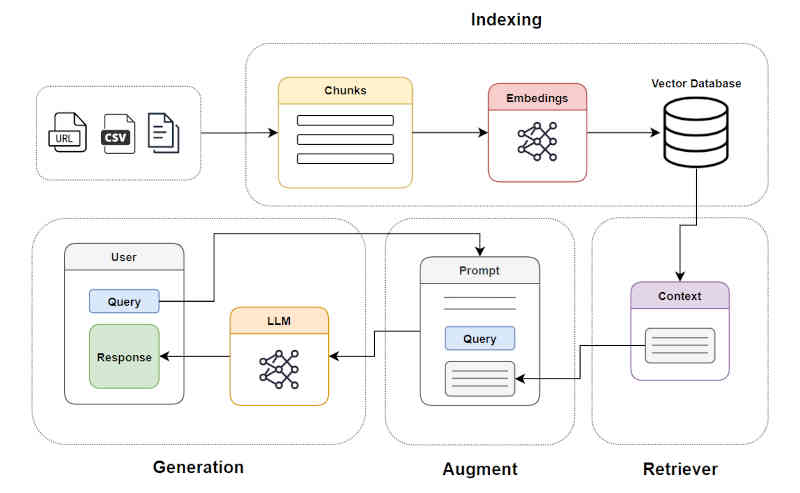| The Advanced + Agentic RAG Cookbooks |
| Written by Nikos Vaggalis | |||
| Thursday, 27 February 2025 | |||
|
We take a look at a repository containing a wealth of advanced Retrieval-Augmented Generation (RAG) resources that also includes RAG techniques for the latest trend of Agentic systems. Although RAG is new in the landscape it's something we've already covered a couple of times, starting with a tutorial by Langchain, see RAG from Scratch. More recently, in Getting Going With RAG, I reported on IBM's RAG Cookbook which provides another inside view and explains that RAG is a technique that: allows LLMs to amplify the user's query by connecting to external data in real time when generating their output.
This RAG Cookbook comes from AthinaAI, a collaborative AI development platform and leverages Athina's open source SDK to evaluate the performance of an LLM. Evaluating RAG applications is important for understanding how well these systems work and effective evaluation helps optimize performance and builds confidence in RAG applications for real-world use.
The techniques the cookbook describes are split into Advanced RAG techniques and Agentic RAG Techniques which are the AI agent-based implementation of RAG that go beyond simple information retrieval and generation to perform tasks by calling external tools. The non agentic RAG category covers:
These topics are stacked in order of implementation difficulty, but also by best performance. The same holds true for the Agentic RAG Techniques as well:
What's different with this cookbook, is that it is purely hands on with annotated code for easy comprehension, rather than the usual contrived material, and offers deep insights. It also adds another step, that of evaluation, which, while crucial in determining how well the RAG pipeline performs, is often skipped. What's more you don't have to set up anything up beforehand, as every example runs on its own online Colab notebook. Highly recommended.
More InformationAdvanced + Agentic RAG Cookbooks Related Articles
To be informed about new articles on I Programmer, sign up for our weekly newsletter, subscribe to the RSS feed and follow us on Twitter, Facebook or Linkedin.
Comments
or email your comment to: comments@i-programmer.info |




